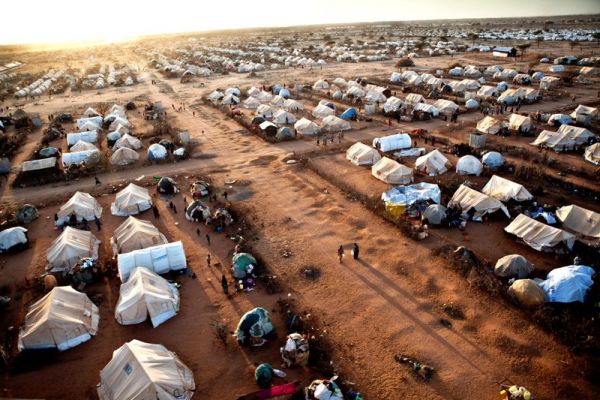IRC alarmed by rising cases of malnutrition in Kenyan refugee camps

GOOBJOOG NEWS | DADAAB: The International Rescue Committee (IRC) has called for urgent attention over the alarming levels of acute malnutrition affecting thousands of refugees in the Kakuma and Dadaab refugee camps in Kenya.
The humanitarian organization says that despite ongoing efforts, malnutrition rates have reached a critical level, posing a severe threat to the health and well-being of refugees, particularly children.
In May alone, IRC notes, patients admitted with the most life-threatening form of malnutrition with other complications rose by almost 95% in the Hagadera refugee camp in Dadaab.
It further observes that the prolonged drought in Horn of Africa has increased food insecurity, leading to a rise in malnutrition levels for both the refugee and the general Kenyan population.
“Kenya’s rainy season has also contributed to the population’s overall vulnerability, with spikes in illnesses, such as malaria. Furthermore, food rations have been cut to 80% of their usual amount, significantly impacting food security for refugees living in Kenya,” the IRC notes.
The organization also states that acute malnutrition has far-reaching consequences, impacting not only physical development but also cognitive abilities and that without adequate nutrition, children are more susceptible to illnesses, infections, and lifelong health issues.
Devastating impact
According to IRC Kenya Country Director Mohammed el Montassir, the organization has documented noted with concern the devastating impact of malnutrition on children in the Kakuma and Hagadera camps saying the situation demands urgent attention.
“There is a proven and highly effective treatment for malnutrition, but globally 80% of acutely malnourished children cannot access it. We call on governments, donors, and the international community to join hands with us in combating malnutrition and providing a better future for these children by adopting the simplified protocol for treatment and using community health workers to bring treatment directly to communities in need. The international community must ensure that no child falls victim to acute malnutrition and its devastating consequences,” he says.
By Fauxile Kibet